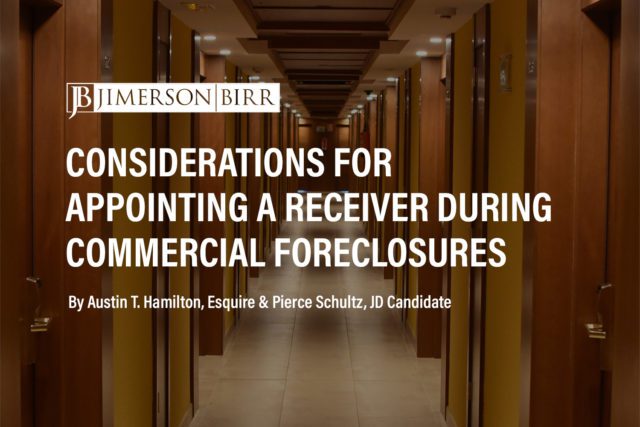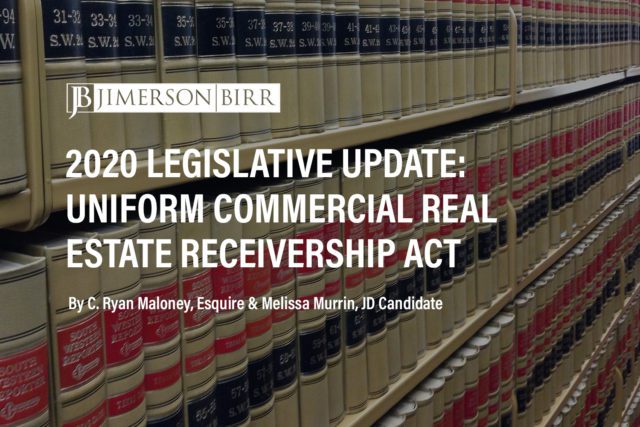What does the receivership process encompass?
Receiverships, a legal remedy in the context of Florida law, involve court-appointed individuals or entities that take control of and manage property or businesses to protect the interests of various parties. For example, the court typically appoints a receiver when a company is insolvent or in fraud, mismanagement, or waste cases.
Receiverships protect the interests of creditors, shareholders, and other stakeholders, ensuring proper management and disposition of the property or business. Courts evaluate requests for receiverships by considering factors like the likelihood of irreparable harm, inadequate remedies at law, and the balance of hardships between the parties.
Need a receivership advocate? Schedule your consultation today with a top receivership attorney.
Which laws, rules, and regulations apply to receiverships?
Florida receiverships follow state and federal laws, regulations, and court decisions. At the state level, Florida Rules of Civil Procedure Rule 1.620 lays out the procedural requirements for the appointment of a receiver. Additionally, the Florida Statutes provide a framework for the selection and powers of receivers in various contexts, including the following legal situations:
In addition to state law, federal statutes and regulations, such as the Bankruptcy Code and the Federal Rules of Civil Procedure Rule 66, can also apply to receiverships in certain circumstances.
Moreover, case law from Florida and federal courts further and continuously shapes the receivership landscape, guiding receivers’ appointments, powers, and duties in specific factual scenarios.
What are common claims against a receiver?
The following issues related to receiverships commonly lead to litigation:
- Breach of fiduciary duty: Receivers must uphold the highest standards of care and loyalty in managing the assets entrusted to them. They must act in the best interests of the entity or assets they oversee. If a claimant believes the receiver has not met their fiduciary duties, they typically need to show that:
-
- A fiduciary relationship existed between the claimant and the receiver;
- The receiver breached their fiduciary duty; and
- The claimant suffered harm because of the breach.
-
- Mismanagement of assets: If the receiver is perceived to have poorly managed, wasted, or negligently handled the assets, claimants may file a claim. Mismanagement could include failure to maintain or properly insure property, making poor investment decisions, or selling assets at an inappropriate time or price. A claimant must establish that:
-
- The receiver had a duty to manage the assets responsibly;
- The receiver failed to fulfill this duty; and
- The claimant suffered a loss because of this failure.
-
- Fraud or dishonesty: Though rare, there may be claims that the receiver has acted dishonestly or fraudulently, such as embezzling funds, misrepresenting asset values, or favoring certain claimants. Claimants must prove the following:
-
- The receiver made a false representation;
- The receiver knew the representation was false or was reckless as to its truth;
- The receiver intended to induce the claimant to rely on the false representation;
- The claimant did rely on the false representation; and
- The claimant suffered harm as a result.
-
- Negligence: This action covers situations when the receiver fails to exercise the care that a reasonably prudent person would exercise in like circumstances. For example, they may neglect to perform necessary tasks, properly account for assets, or make decisions without adequate research or due diligence. A negligence claim requires proof of the following:
-
- The receiver had a duty of care to the claimant;
- The receiver breached this duty of care; and
- The claimant suffered harm due to this breach.
-
- Failure to comply with court orders or legal requirements: Receivers are often appointed by a court and are subject to various legal requirements and court orders. If they fail to comply with these, they may face liability. Here is what a claimant must establish:
-
- The receiver had a duty of care to the claimant;
- The receiver breached this duty of care; and
- The claimant suffered harm due to this breach.
-
- Conflicts of interest: A receiver must act impartially and avoid conflicts of interest. If they have a personal or financial interest that could compromise their impartiality, this could form the basis of a claim if the following are present:
-
- The receiver had a duty of care to the claimant;
- The receiver breached this duty of care; and
- The claimant suffered harm because of this breach.
-
- Violation of statutory duties: In some jurisdictions, receivers have statutory responsibilities laid down by law. Receivers who fail to fulfill these duties may face legal action. While the specific requirements of a related claim will differ (sometimes substantially) by the applicable statute, claimants can generally expect to prove the following:
-
- The receiver had a statutory duty to the claimant;
- The receiver breached this duty; and
- The claimant suffered harm because of this breach.
-
- Improper distribution of assets: If the receiver distributes the assets in a way that is not fair or equitable to all parties involved, a claim is available against them. A claimant must generally show the following:
-
- The receiver had a duty of care to the claimant;
- The receiver breached this duty of care; and
- The claimant suffered harm as a result of this breach.
-
When a set of facts is appropriate for legal advocacy or intervention, there are many paths a claimant may take. We are value-based attorneys at Jimerson Birr, which means we look at each action with our clients from the point of view of costs and benefits while reducing liability. Then, based on our client’s objectives, we chart a path to seek appropriate remedies.
To determine whether your unique situation may necessitate litigation or another form of specialized advocacy, please contact our office to set up your initial consultation.
What measures should legal counsel take to represent clients with claims against a receiver, and how do clients strategically benefit?
Counsel should consider the following to protect their clients:
- Thoroughly investigate the receiver’s actions, gathering evidence of the alleged breach
- Research relevant Florida and federal statutes, codes, rules of procedure, and regulations governing receiverships
- Develop a comprehensive strategy for the case, including pretrial negotiations, arbitrations, or trial
- Advocate for the client’s interests throughout the legal process
Strategic benefits for clients include:
- Pursuing a fair resolution or settlement that may provide monetary damages or other remedies
- Holding the receiver accountable for their actions, potentially preventing further breaches of fiduciary duties
- Ensuring that the receivership process is conducted fairly and in compliance with the law
Please contact our office to schedule your initial consultation and determine what legal advocacy and protection may be available for your unique situation.
Frequently Asked Questions
- What is a breach of fiduciary duties by a receiver?
A breach of fiduciary duties occurs when a receiver fails to act in the best interests of the parties involved or mismanages the assets entrusted to them, harming the parties.
2. How can an attorney prove a breach of fiduciary duties?
An attorney can prove a breach of fiduciary duties by presenting evidence of the receiver’s actions, demonstrating that those actions were not in the parties’ best interests, and showing that the actions caused harm.
3. What remedies can a client seek in a case against a receiver for breach of fiduciary duties?
A client can seek remedies such as monetary damages, removal of the receiver, or other court-ordered actions to rectify the breach and protect the parties’ interests.
Have more questions about receiverships?
Crucially, this overview of representing clients with claims against a receiver does not begin to cover all the laws implicated by this issue or the factors that may compel the application of such laws. Every case is unique, and the laws can produce different outcomes depending on the individual circumstances.
Jimerson Birr attorneys guide our clients to help make informed decisions while ensuring their rights are respected and protected. Our lawyers are highly trained and experienced in the nuances of the law, so they can accurately interpret statutes and case law and holistically prepare individuals or companies for their legal endeavors. Through this intense personal investment and advocacy, our lawyers will help resolve the issue’s complicated legal problems efficiently and effectively.
Having a Jimerson Birr attorney on your side means securing a team of seasoned, multi-dimensional, cross-functional legal professionals. Whether it is a transaction, an operational issue, a regulatory challenge, or a contested legal predicament that may require court intervention, we remain tireless advocates at every step. Being a value-added law firm means putting the client at the forefront of everything we do. We use our experience to help our clients navigate even the most complex problems and come out the other side triumphant.
If you want to understand your case, the merits of your claim or defense, potential monetary awards, or the amount of exposure you face, you should speak with a qualified Jimerson Birr lawyer. Our experienced team of attorneys is here to help. Call Jimerson Birr at (904) 389-0050 or use the contact form to schedule a consultation.


We live by our 7 Superior Service Commitments
- Conferring Client-Defined Value
- Efficient and Cost-Effective
- Accessibility
- Delivering an Experience While Delivering Results
- Meaningful and Enduring Partnership
- Exceptional Communication Based Upon Listening
- Accountability to Goals











